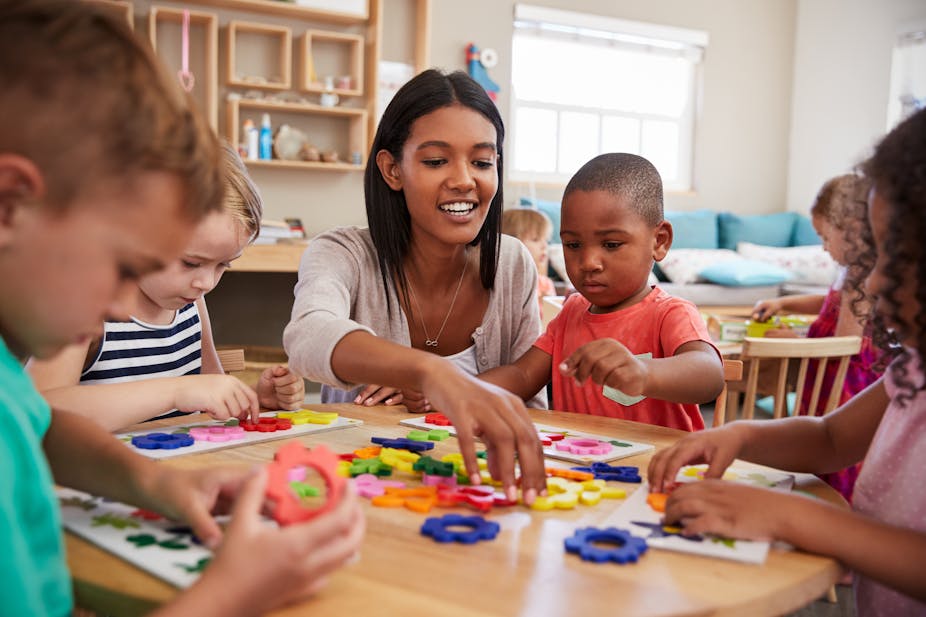Are you a fellow preschool teacher? Welcome to my blog! These are articles I have written to inspire and encourage fellow teachers. Some are purely my own experiences & opinions, while some are based on research I have found. Hope this blog helps you!
Monday, April 13, 2020
6. Reconsidering the Role of the Teacher
The last post of this 6-part series, it is from my SUSS ECH module, ECE102. For this last post, it is about the role of the teacher. The next series will be a 3-part.
The 5 dispositions mentioned previously also apply to teachers. Curiosity, Persistence, Flexibility, Reflectiveness, Collaborativeness.
I must have intentionality in teaching. What I believe is important in education for young children is for them to develop social skills, for them to survive by themselves in the 21st century. There must come a point in someone’s life where they are dealt with a crisis, how can they deal with it? I also believe that no matter how much experience or qualifications a teacher has, it is about how the teacher conducts the lesson. You might have the best materials in the world, but you are so boring. You might only have 1 marker, but you can engage your class. Children should remember you more than what you have used.
Educators follow the belief-goal-practice cycle of teaching. We go back to what we believe in, think of goals, and carry them out. Then we evaluate.
There is a journal article that talks about 12 characteristics of effective teachers. The following is quoted from the article. Characteristics are different from abilities. Being able to be organized is an ability. Most articles tend to be about Primary School teachers, so this article needed to be written, as the Early Childhood field is very different from higher learning. These are the 12 characteristics.
Passion: It has to carry you beyond thinking that children are cute or that the job is fun. It has to ignite you.
Perseverance: This is about fighting for issues or beliefs, to be an advocate for young children.
Willing to take risks: This can be tricky, it means fighting for something even if others say no.
Pragmatism: It refers to being able to know which battles don’t have to be won, and that small wins are better. Compromise is sometimes necessary.
Patience: In dealing with children, adults, colleagues, or the system. Frustrations will no doubt come when what you believe in does not align with what the Singapore system has to offer.
Flexibility: This is also tricky. While change is the only constant, change must be given at a comfortable pace. It is unreasonable to assume teachers should adapt just because they must be “flexible”.
Respect: Respecting people from all backgrounds, Singapore does this well. Teachers have to ensure the learning environment caters for that.
Creativity: This is vital in helping teachers to make use of whatever resources or space available, to ensure the diverse group of children are learning, and also to make learning fun.
Authenticity: It is about being true to yourself. Children are sensitive to this. I find some teachers unable to connect with children because they hide behind a façade of “professionalism”. They do not bring their true self, full of weaknesses, to the children. After all, we are still human.
Love of learning: Seeking out knowledge, to inspire children to want to learn more. Some people think they have “made it”, that they don’t have to pursue any further studies or listen to anybody teaching them.
High energy: This job takes a lot out of me, but it is worth it. When I give them high energy, they will respond equally. They will be energetic to learn, even to do mundane work tasks.
Sense of humour: Interesting that this is not an ability but a characteristic. Anyone can have this. We have to learn to laugh at ourselves, that shows great character. Learning can also be made fun when the lesson is humourous.
Going back to what MOE requires.
Perseverance
Reflectiveness
Appreciation
Inventiveness
Sense of wonder & curiosity
Engagement
The 6 learning domains are Aesthetics & Creative Expression, Discovery of the World, Language & Literacy, Motor Skills Development, Numeracy, Social & Emotional Development.
As a teacher, I should continue to think about the 5 dispositions.
References
Chen, D. (2020). ECE102 Children as thinkers and meaning makers (study guide). Singapore: Singapore University of Social Sciences.
Colker, L. J. (2008). Twelve characteristics of highly effective early childhood teachers. Young Children, 68-73.
Stone-MacDonald, A., Wendell, K., Douglass, A., & Love, M. L. (2015). Engaging Young Engineers- Teaching Problem-Solving Skills Through STEM. Baltimore, Maryland: Paul H. Brookes Publishing Co.
Subscribe to:
Post Comments (Atom)
-
While behaviourists believe in nurture and maturationists believe in nature, constructivists advocate for a balance between the two. Un...
-
The next study unit, unit 2. Not sure if this will also be divided into 2 posts. In this unit, I will be talking about development in childr...
-
The last study unit, which will be divided into 2 posts again. This will be about middle and late childhood, and the last post is about adol...

No comments:
Post a Comment